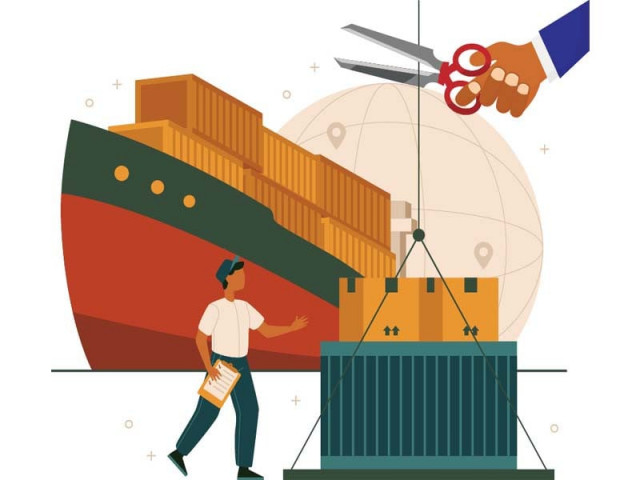SBP lifts import ban amid IMF pressures
Businesspeople predict restrictions will remain in place due to low forex

In a bid to satisfy the International Monetary Fund (IMF), the Pakistani government has announced the immediate lifting of import restrictions. However, both the business community and analysts believe that this move alone will not bring significant changes to practical business activities unless foreign exchange reserves are significantly bolstered.
The State Bank of Pakistan (SBP) issued a notification on Friday, stating that previous instructions to commercial banks regarding priority-based selective imports have been withdrawn, effectively reopening imports in their entirety with immediate effect. Finance Minister Ishaq Dar further reinforced this decision during a parliamentary session, stating, “There will be no restrictions on imports. All conditions are removed.”
While some perceive this as the government fulfilling certain IMF conditions to buy time and maintain its position, Pakistan Business Council (PBC) CEO Ehsan Malik told The Express Tribune that not all conditions have been met. He linked his statement with the one given by Dar during the day in which he said, “it would be good if staff-level agreement is signed with the IMF. Otherwise, life is moving on.”
Dar’s statement suggests that things are not moving as per the government’s desires, however, hopes still remain alive regarding the revival of the programme before it officially expires on June 30, 2023.
According to Malik, the government’s partial compliance with IMF conditions is aimed at presenting an image of resilience. “It suggests that the government’s head is still above water and that it has not yet sunk,” he remarked.
Ismail Iqbal Securities, Head of Research, Fahad Rauf predicts potential volatility in the exchange rate if the government follows through with its decision to fully reopen imports. With foreign exchange reserves currently at a critically low level of less than one-month import cover, around $3.5 billion, he anticipates a potential exchange rate of Rs300-350/$, compared to the current rate of Rs286-287/$.
However, Rauf believes that import restrictions will likely remain in place due to the need to manage low foreign exchange reserves and mitigate the risk of defaulting on foreign debt repayments. Despite this, he remains hopeful that the rupee-dollar exchange rate and the Pakistan Stock Exchange (PSX) will experience improvements as optimism builds regarding the resumption of the IMF programme in the coming days.
Rauf also noted that priority-based imports will continue until foreign currency inflows boost reserves. Energy imports will retain top priority, followed by food and pharmaceutical imports, exports-oriented imports, machinery imports for projects with 75% completion, and imports on one-year deferred payment, respectively.
Experts have highlighted the negative impact of import restrictions on car assembly plants, cement and steel factories, and other industries reliant on imported raw materials. With inflation levels reaching approximately 38% and interest rates soaring to 21%, business activities are expected to remain compromised in the short term.
The PBC CEO underscored that while the central bank publicly announced the reopening of all imports, the unchanged limit on foreign exchange availability for each bank implies that imports will still be regulated, keeping business activities subdued, going forward. He emphasised that Pakistan cannot miraculously boost foreign exchange reserves overnight without the revival of the IMF programme and cautioned against overly optimistic expectations.
“No, the government cannot simply reopen imports under the current circumstances,” he said.
Regarding the possibility of pro-IMF decisions being made by the government in preparation for negotiating the next IMF programme after the upcoming general elections, Malik expressed uncertainty. He highlighted that the fate of the elections, as well as the actions of the caretaker government and the subsequent administration, remains unclear.
With the official expiration of the IMF programme just a week away, the future remains uncertain. Business activities are expected to continue being hampered, and the rupee-dollar exchange rate is projected to remain steady in the short term.
Published in The Express Tribune, June 25th, 2023.
Like Business on Facebook, follow @TribuneBiz on Twitter to stay informed and join in the conversation.



















COMMENTS
Comments are moderated and generally will be posted if they are on-topic and not abusive.
For more information, please see our Comments FAQ